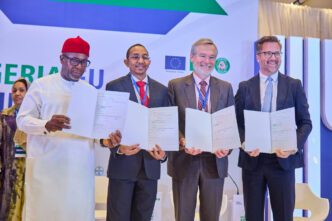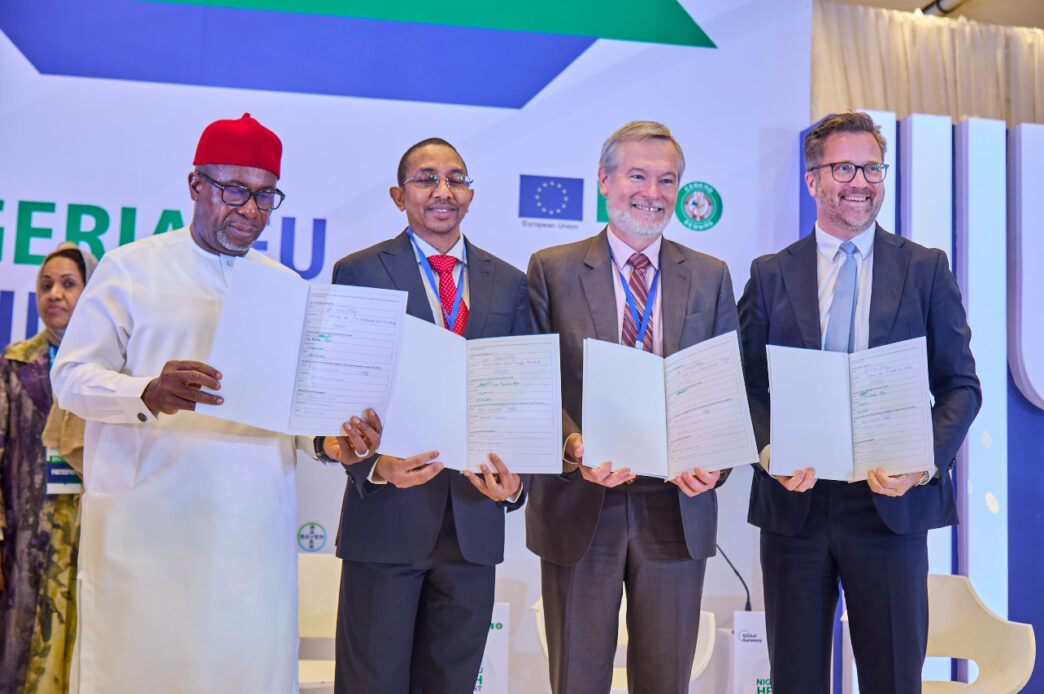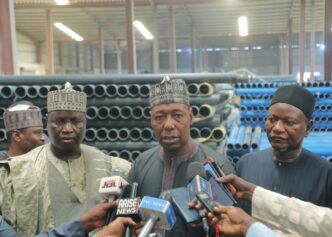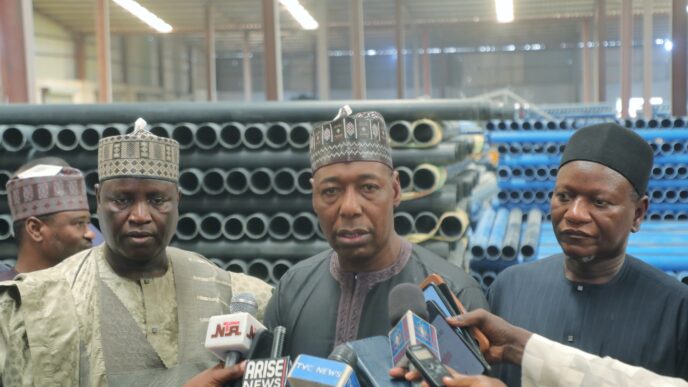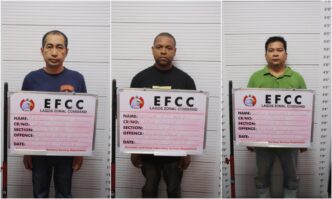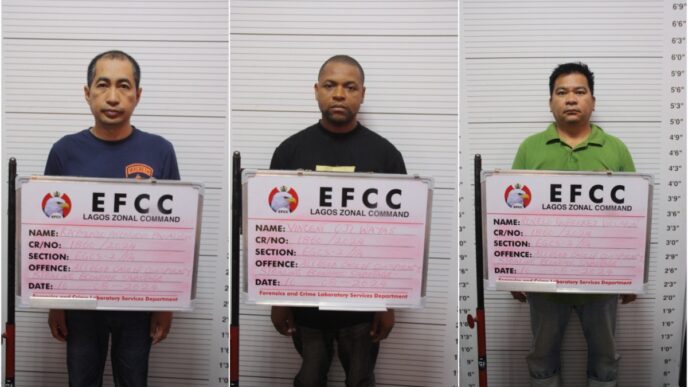Federal government has entered into new agreements with European Union (EU) and Economic Community of West African States (ECOWAS) to enhance local drug manufacturing, attract investments in Nigeria’s pharmaceutical industry, and improve reproductive health and rights across West Africa.
Gatekeepers News reports that the three initiatives — Enabling Local Manufacturing of Health, Immunisation and Nutrition Commodities in Nigeria (ELM-N), Quality Uplift for Advancing Local Industry in Medicine Standards (Qualimeds Nigeria), and Strengthening Reproductive Health and Rights (SRHR) in West Africa — were formalised on Thursday during the Nigeria-EU Health Investment Forum in Abuja.
These programmes are part of the EU’s Global Gateway Manufacturing and Access to Vaccines, Medicines, and Health Technologies (MAV+) scheme, which seeks to build a stronger, self-reliant health system in Nigeria and neighbouring countries.
Vice-President Kashim Shettima, represented by Uju Rochas, his senior special assistant on public health, said the signing of the agreements reflects the government’s determination to create a sustainable, inclusive, and innovation-driven healthcare system.
He noted that the initiative aligns with President Bola Tinubu’s executive order promoting the local production of pharmaceuticals and medical devices, alongside the Presidential Initiative for Unlocking the Healthcare Value Chain (PVAC) and the sector-wide approach (SWAp) framework.
Shettima said, “Our message is clear: Nigeria is open for health investment, innovation, and impact. The President has declared that Nigeria’s health transformation will not be driven by aid and dependency alone, but by ownership, accountability, and innovation made in Nigeria, for Nigerians, and by Nigerians.”
He commended the EU, PVAC, and the National Institute for Pharmaceutical Research and Development (NIPRD) for their collaboration, adding that the partnership marks a new era defined by shared prosperity, local innovation, and global cooperation.
Gautier Mignot, EU ambassador to Nigeria and ECOWAS, said the agreements demonstrate the EU’s continued commitment to strengthening healthcare systems in partnership with Nigerian authorities, the United Nations, and private-sector stakeholders.
Mignot said, “Working alongside all our partners, we must build robust, resilient, and efficient health systems to ensure prosperity for all.”
He added that the EU has supported Nigeria through several health programmes, including immunisation, reproductive health, and medical research, and currently runs a €45 million reproductive and maternal health project in Nigeria, with an additional €25 million for West Africa.
Mignot noted that EU is shifting from traditional aid to peer-to-peer collaboration, focusing on investments that promote sustainability and long-term growth.
Abubakar Bagudu, minister of budget and economic planning, described the agreements as timely, given Nigeria’s ongoing reforms to expand healthcare access. He emphasised that the country’s vast economic capacity creates mutual opportunities for both partners.
Bagudu said, “The absorptive capacity of the Nigerian economy is enormous. We believe that both the EU and Nigeria can win together as we build mutual prosperity.”
Also speaking, Muhammad Ali Pate, minister of health and social welfare, represented by Olubunmi Aribeana, director of food and drug services, reiterated that the local production of medicines and health technologies is essential for both national and regional health security.
Pate said, “Local production of health commodities is not merely an economic choice; it is a strategic health security priority.”
“By scaling up domestic manufacturing of medicines, diagnostics, vaccines, and other health technologies, we can strengthen universal health coverage and regional self-reliance.”

